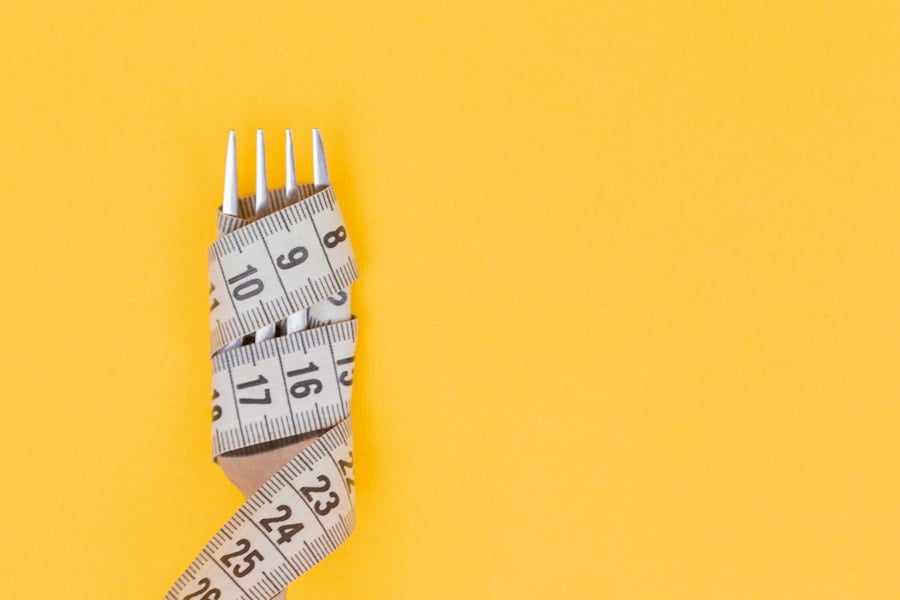
Fueling Your Weight Loss Journey: The Importance of Proper Nutrition
When it comes to weight loss, many people focus solely on cutting calories and increasing physical activity. While these are important factors, nutrition plays a crucial role in achieving weight loss goals. The food we eat provides our bodies with the energy and nutrients needed for optimal functioning. By making healthy food choices, we can not only support weight loss but also improve overall health.
Weight loss is not just about reducing the number on the scale; it is about nourishing our bodies with the right nutrients. A diet that is high in processed foods, added sugars, and unhealthy fats can lead to weight gain and various health problems. On the other hand, a diet that is rich in whole foods, lean proteins, healthy fats, and complex carbohydrates can support weight loss and promote overall well-being.
Key Takeaways
- Understanding the role of nutrition is crucial for successful weight loss.
- Macronutrients and micronutrients are the building blocks of a balanced diet.
- A balanced diet is essential for sustainable weight loss.
- Caloric intake and expenditure must be understood for effective weight loss.
- Reading food labels and choosing whole foods and plant-based options can improve nutrition.
The Basics of Nutrition: Macronutrients and Micronutrients
Macronutrients are the nutrients that our bodies need in large quantities to function properly. They include carbohydrates, proteins, and fats. Carbohydrates are the body’s main source of energy and can be found in foods such as fruits, vegetables, grains, and legumes. Proteins are essential for building and repairing tissues, as well as for supporting immune function. Good sources of protein include lean meats, poultry, fish, eggs, dairy products, and plant-based sources such as beans and tofu. Fats are important for hormone production, brain function, and nutrient absorption. Healthy sources of fats include avocados, nuts, seeds, olive oil, and fatty fish.
Micronutrients are the nutrients that our bodies need in smaller quantities but are equally important for overall health. They include vitamins and minerals. Vitamins are organic compounds that our bodies need to function properly. They play a role in various bodily processes such as metabolism, immune function, and cell growth. Minerals are inorganic substances that our bodies need for proper functioning. They are involved in processes such as bone health, nerve function, and fluid balance. Good sources of vitamins and minerals include fruits, vegetables, whole grains, lean proteins, and dairy products.
The Importance of a Balanced Diet for Sustainable Weight Loss
A balanced diet is essential for sustainable weight loss. It involves consuming a variety of foods from all food groups in the right proportions. A balanced diet provides the body with the necessary nutrients for optimal functioning while also supporting weight loss goals.
One of the benefits of a balanced diet is that it ensures that you are getting all the essential nutrients your body needs. Each food group provides different nutrients, so by including a variety of foods in your diet, you can ensure that you are meeting your nutritional needs. For example, fruits and vegetables are rich in vitamins and minerals, whole grains provide fiber and energy, lean proteins support muscle growth and repair, and healthy fats provide essential fatty acids.
Another benefit of a balanced diet is that it promotes moderation and portion control. By including all food groups in your diet, you can enjoy a wide variety of foods while still maintaining a calorie deficit for weight loss. This can help prevent feelings of deprivation and make it easier to stick to your weight loss plan in the long term.
Understanding Caloric Intake and Expenditure for Effective Weight Loss
| Metrics | Description |
|---|---|
| Basal Metabolic Rate (BMR) | The amount of energy expended while at rest to maintain basic bodily functions |
| Total Daily Energy Expenditure (TDEE) | The total amount of energy expended in a day, including BMR and physical activity |
| Caloric Intake | The amount of calories consumed through food and beverages |
| Caloric Deficit | The difference between caloric intake and TDEE, necessary for weight loss |
| Macronutrients | Nutrients required in large amounts, including carbohydrates, proteins, and fats |
| Micronutrients | Nutrients required in small amounts, including vitamins and minerals |
| Body Mass Index (BMI) | A measure of body fat based on height and weight |
| Waist Circumference | A measure of abdominal fat, which can increase the risk of health problems |
Calories are units of energy that our bodies need to function properly. When it comes to weight loss, creating a calorie deficit is key. This means consuming fewer calories than your body needs to maintain its current weight.
To create a calorie deficit, you can either reduce your caloric intake or increase your caloric expenditure through physical activity. It is important to note that extreme calorie restriction is not sustainable or healthy in the long term. Instead, aim for a moderate calorie deficit of around 500-1000 calories per day, which can lead to a gradual and sustainable weight loss of 1-2 pounds per week.
It is also important to focus on the quality of the calories you consume, not just the quantity. While it is possible to lose weight by simply reducing calories, it is not sustainable or healthy to rely on processed foods and empty calories. Instead, focus on consuming nutrient-dense foods that provide the necessary vitamins, minerals, and macronutrients your body needs for optimal functioning.
How to Read Food Labels and Make Informed Nutritional Choices
Reading food labels can be a helpful tool in making informed nutritional choices. Food labels provide information about the nutrient content of a product, including the number of calories, macronutrients, and micronutrients.
When reading food labels, start by looking at the serving size. This will help you determine how many servings are in the package and how many calories and nutrients are in each serving. Next, look at the total calories per serving. This will give you an idea of how many calories you are consuming.
Pay attention to the macronutrient breakdown as well. Look for products that are low in saturated fats, trans fats, and added sugars. Aim for products that are high in fiber and protein, as these can help keep you feeling full and satisfied.
It is also important to look beyond the numbers on the label and consider the ingredients list. Choose products that have a short list of ingredients and avoid those that contain artificial additives, preservatives, and hydrogenated oils.
Incorporating Whole Foods and Plant-Based Options into Your Diet

Whole foods are foods that are minimally processed and contain no added sugars or artificial additives. They are rich in nutrients and provide numerous health benefits. Incorporating whole foods into your diet can support weight loss goals and improve overall health.
Plant-based options are a great choice for weight loss as they are typically lower in calories and higher in fiber compared to animal-based options. They are also rich in vitamins, minerals, and antioxidants. Examples of plant-based options include fruits, vegetables, whole grains, legumes, nuts, and seeds.
To incorporate whole foods and plant-based options into your diet, start by increasing your intake of fruits and vegetables. Aim for at least five servings per day and choose a variety of colors to ensure you are getting a wide range of nutrients. Replace refined grains with whole grains such as quinoa, brown rice, and whole wheat bread. Include legumes such as beans, lentils, and chickpeas in your meals for a good source of protein and fiber. Snack on nuts and seeds for a healthy dose of fats and protein.
The Role of Protein in Weight Loss and Muscle Maintenance
Protein plays a crucial role in weight loss and muscle maintenance. It is important for building and repairing tissues, supporting immune function, and regulating hormones.
When it comes to weight loss, protein can help increase feelings of fullness and reduce cravings. It has a higher thermic effect compared to carbohydrates and fats, meaning that it requires more energy to digest and absorb. This can help boost metabolism and increase calorie expenditure.
Including protein-rich foods in your diet can also help preserve lean muscle mass during weight loss. When you lose weight, both fat mass and muscle mass can be lost. By consuming an adequate amount of protein, you can help minimize muscle loss and maintain a healthy body composition.
Good sources of protein include lean meats, poultry, fish, eggs, dairy products, legumes, tofu, tempeh, seitan, and edamame. Aim for a variety of protein sources to ensure you are getting all the essential amino acids your body needs.
The Benefits of Healthy Fats for Weight Loss and Overall Health
Contrary to popular belief, fats are an essential part of a healthy diet and can actually support weight loss. Healthy fats provide energy, help absorb fat-soluble vitamins, and support brain function.
Including healthy fats in your diet can help increase feelings of fullness and satisfaction, which can prevent overeating. They also slow down the digestion process, which can help stabilize blood sugar levels and prevent spikes in hunger.
Healthy fats are found in foods such as avocados, nuts, seeds, olive oil, coconut oil, fatty fish (such as salmon and mackerel), and nut butters. Aim to include a small amount of healthy fats in each meal to support weight loss and overall health.
The Importance of Hydration for Weight Loss and Body Function
Hydration is often overlooked when it comes to weight loss, but it plays a crucial role in overall health and can support weight loss goals. Water is essential for digestion, nutrient absorption, metabolism, and waste elimination.
Drinking enough water can help increase feelings of fullness and prevent overeating. It can also boost metabolism and increase calorie expenditure. In fact, studies have shown that drinking water can temporarily increase metabolism by up to 30%.
To stay hydrated throughout the day, aim to drink at least 8 cups (64 ounces) of water per day. You can also include hydrating foods such as fruits and vegetables in your diet.
Nutritional Supplements for Weight Loss Support: Separating Fact from Fiction
Nutritional supplements are often marketed as a quick fix for weight loss, but it is important to separate fact from fiction when it comes to their effectiveness. While some supplements may have a modest effect on weight loss, they are not a magic solution and should not replace a healthy diet and lifestyle.
Some supplements that have been shown to support weight loss include green tea extract, caffeine, fiber supplements, and protein powders. However, it is important to note that these supplements should be used in conjunction with a balanced diet and regular exercise.
It is also important to be cautious of supplements that make exaggerated claims or have not been backed by scientific evidence. Always consult with a healthcare professional before starting any new supplement regimen.
In conclusion, nutrition plays a crucial role in weight loss and overall health. By making healthy food choices and incorporating a balanced diet into your weight loss journey, you can support your goals and improve your well-being. Focus on consuming a variety of whole foods, lean proteins, healthy fats, and complex carbohydrates. Pay attention to portion sizes and create a calorie deficit through diet and exercise. Stay hydrated throughout the day and consider incorporating nutritional supplements that are backed by scientific evidence. Remember, sustainable weight loss is a journey, so be patient with yourself and make choices that support your long-term health and well-being.
FAQs
What is nutrition?
Nutrition is the study of how food affects the body and its functions. It involves the process of consuming, digesting, and utilizing nutrients from food to maintain health and wellbeing.
What is weight loss?
Weight loss is the process of reducing body weight, usually by losing fat. It can be achieved through a combination of diet, exercise, and lifestyle changes.
How does nutrition affect weight loss?
Nutrition plays a crucial role in weight loss. Consuming a balanced diet that is low in calories and high in nutrients can help promote weight loss. Eating foods that are high in fiber, protein, and healthy fats can also help keep you feeling full and satisfied, which can prevent overeating.
What are some foods that can aid in weight loss?
Foods that can aid in weight loss include fruits, vegetables, whole grains, lean proteins, and healthy fats. These foods are typically low in calories and high in nutrients, which can help promote weight loss.
What are some foods that should be avoided for weight loss?
Foods that should be avoided for weight loss include processed foods, sugary drinks, fried foods, and foods high in saturated and trans fats. These foods are typically high in calories and low in nutrients, which can contribute to weight gain.
How much should I eat to lose weight?
The amount of food you should eat to lose weight depends on your individual needs and goals. Generally, it is recommended to consume a calorie deficit of 500-1000 calories per day to lose 1-2 pounds per week.
Do I need to exercise to lose weight?
While exercise is not necessary for weight loss, it can help speed up the process and improve overall health. Combining a healthy diet with regular exercise can help promote weight loss and improve overall fitness.


















